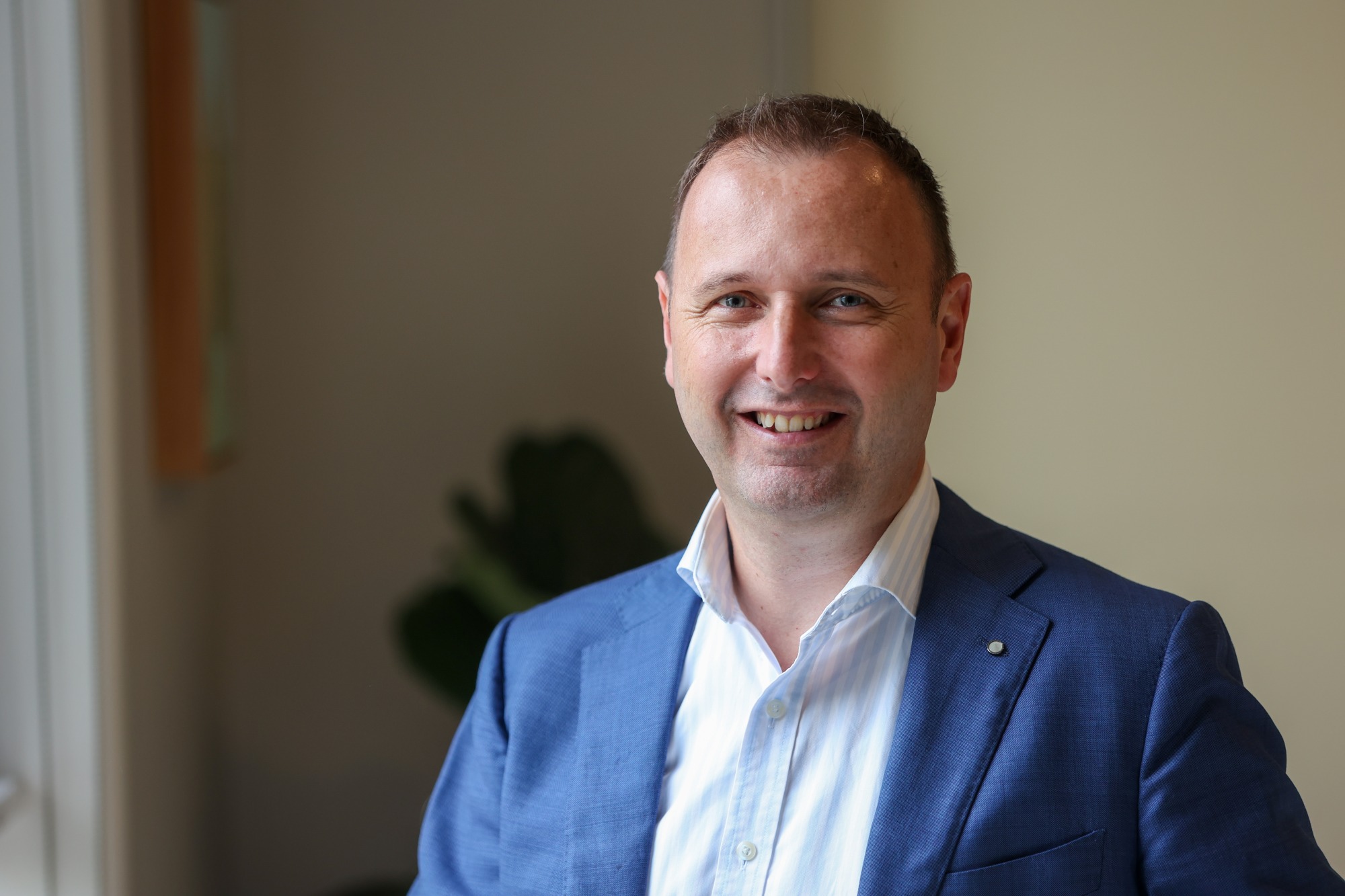ROOT
Australian retirement optimism reaches five-year high despite economic uncertainty
ROOT
Australian retirement optimism reaches five-year high despite economic uncertainty
Australians are demonstrating significantly higher levels of optimism and confidence about their retirement prospects, with sentiment reaching a five-year peak despite ongoing global economic challenges.
Australian retirement optimism reaches five-year high despite economic uncertainty
Australians are demonstrating significantly higher levels of optimism and confidence about their retirement prospects, with sentiment reaching a five-year peak despite ongoing global economic challenges.

The findings come from State Street Global Advisors' 2025 Global Retirement Reality Report, which surveyed over 4,300 employees across the US, UK, Ireland, Australia and Canada who participate in defined contribution savings plans.
Among the 606 Australian respondents, one-third expressed optimism about being financially prepared for retirement by their planned retirement age, representing a notable increase from 24 per cent in August 2023 and 22 per cent in May 2020.
Australia ranks as one of the most optimistic countries regarding financial preparedness for retirement, sitting just behind the US at 34 per cent.
Canadian and UK respondents reported the lowest optimism levels, both at 20 per cent.

The average expected retirement age for Australian respondents is 66, aligning with the US but later than Canada's average of 64.
The survey identified the top three factors positively influencing retirement confidence for Australians: 43 per cent cited having little or no short-term debt, loans and credit card bills, while 43 per cent expressed confidence that their superannuation is invested wisely.
Additionally, 40 per cent noted their financial ability to save for retirement as positively affecting their confidence.
Jonathan Shead, head of investments for Australia at State Street Global Advisors, said the survey presented a hopeful picture despite ongoing concerns.
"While this year's survey presents a hopeful picture, with respondents in Australia and globally generally optimistic about their retirement prospects, the impact of inflation and the broader economic environment remain real concerns over the long term," Shead said.
"There are still 28 per cent of Australian respondents expecting to partially retire and continue working, while over 10 per cent cannot envision ever being financially secure enough to afford retirement."
Australians identified inflation, increased cost of living and medical expenses as the top three barriers negatively impacting their retirement confidence.
"Complex interactions between the public and private systems, concern about health insurance costs in an inflationary environment, and uncertainty about out-of-pocket costs are likely all detracting for retirement confidence for Australians," Shead said.
"This highlights the tension between personal financial management and global macroeconomic uncertainty."
The survey found that one-third of Australians have changed their outlook on retirement in the past six months, with many adjusting their plans by either delaying full retirement or embracing partial retirement.
Gender and income disparities emerge in retirement confidence levels, with 42 per cent of male respondents optimistic about being financially prepared for retirement compared to 24 per cent of female respondents.
Women were less likely to have investments outside superannuation at 40 per cent versus 53 per cent for men, and were less likely to have a financial adviser.
"The facts about gender and superannuation have been debated in the public square for years," Shead said.
"Median balances for women are lower than men across all age groups."
The survey revealed that respondents with an income of $100,000 or more are more confident about retirement financial preparedness.
Younger workers tend to be more optimistic about their retirement prospects compared to those nearing retirement, though optimism significantly declines at age 45.
Over half of surveyed participants in Australia associate retirement income with a steady, dependable income stream, though about one in five still view it as simply a drawdown plan.
On average, Australians believe they will need just over half of their current income to maintain their desired lifestyle in retirement.
The survey found a significant confidence gap between advised and unadvised clients, with 64 per cent of advised clients expecting to be financially prepared for retirement compared to only 25 per cent of unadvised clients.
More than one in four Australian respondents do not have a plan for their retirement savings once retired, with a gender gap evident as women are less likely to have a plan than men.
"Australians recognise that finances can be complex. And yet, less than 10 per cent of survey respondents have sought financial advice in the past six months," Shead said.
"With an aging population and an environment where change and uncertainty remain constant, retirement planning has never been more important."

Retirement
Retirement is not a dirty word: From lost time to lasting impact
We are on the brink of a silent crisis. In the next few years, Australia will see an unprecedented wave of experienced, high-achieving women stepping out of the workforce. They’re retiring at a scale ...Read more

Retirement
New study reveals habits that boost retirement confidence
A recent study by AustralianSuper has found that less than half of Australians are confident about their retirement prospects, but simple daily habits can significantly improve this outlook. Read more

Retirement
AMP study reveals generational gap in financial communication and expectations
A new study by AMP has uncovered significant differences in how younger Australians and their parents approach intergenerational wealth matters. Read more

Retirement
Home care admissions surge 267% in a decade, prompting calls for aged care reform
The Retirement Living Council (RLC) is urging the Australian Government to prioritise aged care reforms following the release of new data showing a significant increase in home care admissions over ...Read more

Retirement
Retirement Living Council urges government to implement urgent home care reforms as waitlist doubles
The Retirement Living Council (RLC) is calling on the Australian Government to implement urgent home care reforms, following new data revealing that the number of Australians approved for a home care ...Read more

Retirement
Retirees face dilemma in supporting children amid housing affordability crisis, AMP research finds
New research from AMP has revealed that four in five Australians aged 65 and over believe their children face similar or harder financial challenges than they did growing up, largely due to rising ...Read more

Retirement
Retirement Living Council criticises Budget for neglecting seniors' housing needs
The Retirement Living Council (RLC) has expressed disappointment with the Australian government's FY25 Budget, stating that it fails to address the housing needs of a large cohort of older Australians ...Read more

Retirement
Government urged to include retirement units in housing targets to address supply challenges
The Retirement Living Council (RLC), the national peak body for retirement and seniors' housing accommodation, is calling on the government to include retirement units in the Prime Minister's target ...Read more

Retirement
Retirement is not a dirty word: From lost time to lasting impact
We are on the brink of a silent crisis. In the next few years, Australia will see an unprecedented wave of experienced, high-achieving women stepping out of the workforce. They’re retiring at a scale ...Read more

Retirement
New study reveals habits that boost retirement confidence
A recent study by AustralianSuper has found that less than half of Australians are confident about their retirement prospects, but simple daily habits can significantly improve this outlook. Read more

Retirement
AMP study reveals generational gap in financial communication and expectations
A new study by AMP has uncovered significant differences in how younger Australians and their parents approach intergenerational wealth matters. Read more

Retirement
Home care admissions surge 267% in a decade, prompting calls for aged care reform
The Retirement Living Council (RLC) is urging the Australian Government to prioritise aged care reforms following the release of new data showing a significant increase in home care admissions over ...Read more

Retirement
Retirement Living Council urges government to implement urgent home care reforms as waitlist doubles
The Retirement Living Council (RLC) is calling on the Australian Government to implement urgent home care reforms, following new data revealing that the number of Australians approved for a home care ...Read more

Retirement
Retirees face dilemma in supporting children amid housing affordability crisis, AMP research finds
New research from AMP has revealed that four in five Australians aged 65 and over believe their children face similar or harder financial challenges than they did growing up, largely due to rising ...Read more

Retirement
Retirement Living Council criticises Budget for neglecting seniors' housing needs
The Retirement Living Council (RLC) has expressed disappointment with the Australian government's FY25 Budget, stating that it fails to address the housing needs of a large cohort of older Australians ...Read more

Retirement
Government urged to include retirement units in housing targets to address supply challenges
The Retirement Living Council (RLC), the national peak body for retirement and seniors' housing accommodation, is calling on the government to include retirement units in the Prime Minister's target ...Read more








